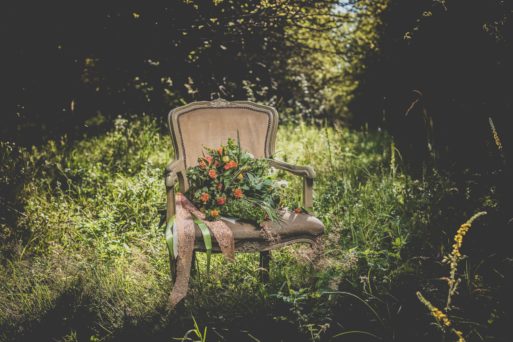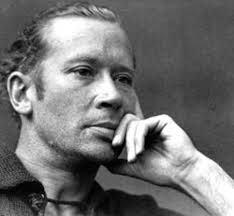 E.E. Cummings, a prolific and pioneering poet from the early 20th century, is a master of image, and his lyric, witty style paints thoughtful, compelling landscapes. He is known for his unusual and sometimes bizarre way of handling language and punctuation. He uses cadence and unique structure combined with beautiful metaphors to evoke powerful emotional responses.
E.E. Cummings, a prolific and pioneering poet from the early 20th century, is a master of image, and his lyric, witty style paints thoughtful, compelling landscapes. He is known for his unusual and sometimes bizarre way of handling language and punctuation. He uses cadence and unique structure combined with beautiful metaphors to evoke powerful emotional responses.
“Suppose,” a poem about death and life, is one such piece.
In “Suppose,” life and death are personified. Life is an old man, possibly drunk, carrying flowers upon his head as he walks through the street. Death is a well-dressed young man who sits at a cafe. The flowers the old man carries may represent time or all the lovely things life has to offer. Death has money, and would like to buy the flowers.
Life is an old man carrying flowers on his head.
young death sits in a café
smiling, a piece of money held between
his thumb and first finger
(i say “will he buy flowers” to you
and “Death is young
life wears velour trousers
life totters, life has a beard”
With “i say” Cummings continues the conversation about Life and Death, focusing on Life — his shortcomings (existing like “an old man 3 thirds asleep”) and what he is looking for:
always crying
to nobody something about les
roses les bluets
yes,
will He buy?
Here, E.E. Cummings evokes a wasted life, or a life of fear. Life is an old man, crying, wanting someone to buy his flowers (les roses, les bluets), while also dreading the moment when someone will take from him all the beautiful things that life has to offer. Here, that someone is Death.
At this point, the poem feels quite melancholy. We feel sorry for the old man when Death doesn’t take advantage of him and his flowers. But the mood and the message of the poem change drastically with its final lines:
there is a lady, whose name is Afterwards
she is sitting beside young death, is slender;
likes flowers.

Credit: youtube.com
Here the poem becomes hopeful and positive. Throughout, Cummings draws us in with his unique metaphor of life and death, and the fear of the inevitable: Death will take everything from Life. But with his final stanza, he introduces Afterwards, the slender lady sitting at the table with Death. As it turns out, Death is not savagely hunting the flowers for himself, to take everything from Life. No, instead he is buying them for Afterwards — transferring the beauty of Life to Afterlife.
The beauty of poetry is that its message can be interpreted however we like. If one believes in an afterlife of one form or another, the hope presented in the end of this poem is clear. And even if one doesn’t, the image of a flowers being tenderly transferred from Life to Death and then delivered to the Afterlife evokes a gentle acceptance of the inevitable.

 “Suppose” by E.E. Cummings
“Suppose” by E.E. Cummings


 Recovering Cremation Remains After the Los Angeles Fires
Recovering Cremation Remains After the Los Angeles Fires
 “As Tears Go By” by Marianne Faithfull
“As Tears Go By” by Marianne Faithfull
 “The Sea” by John Banville
“The Sea” by John Banville














